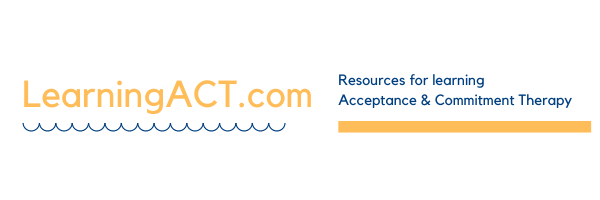Acceptance and Commitment Therapy (ACT, said as one word, not the letters) is a new cognitive-behavior therapy that has gained increasing attention in recent years. ACT emphasizes such processes as mindfulness, acceptance, and values in helping clients overcome obstacles in their lives. A basic assumption of ACT is that suffering is a normal and unavoidable part of human experience and that it is actually people’s attempts to control or avoid their own painful experiences that leads to much long-term suffering and what doesn’t work in people’s lives. ACT helps people learn ways to let go of the struggle with pain, be more mindful, get clarity on what really matters to them, and to commit to living full, vibrant lives. The goal of therapy is not to eliminate certain parts of one’s experience of life, but rather to learn how to experience life more fully, without as much struggle, and with vitality and commitment.
ACT is considered an empirical psychotherapy in that its practitioners and researchers are dedicated to the development of science and empirical evaluation of its effects. ACT has, as of May 2006, been evaluated in over 24 randomized clinical trials for a variety of client problems. ACT has also been adapted to create a non-therapy version of the same processes called Acceptance and Commitment Training. This training process, oriented toward the development of mindfulness, acceptance, and values skills in nonclinical settings, such as businesses or schools, has also been investigated in a handful of research studies with good preliminary results.
ACT is based on a behavior analytic account of language and cognition called Relational Frame Theory (RFT). RFT now has over 80 studies supporting its basic tenets and has been researched for over two decades. RFT holds that while language has been key in allowing us to dominate the planet and create amazing levels of wealth and security, it also has a dark side. Basic properties of language seem to lie behind much of the suffering that humans experience. ACT, the applied technology resulting from RFT, attempts to help people circumvent language in those areas of life where it is less helpful, and strengthen the most useful aspects of language in the domains where it tends to be most helpful.
